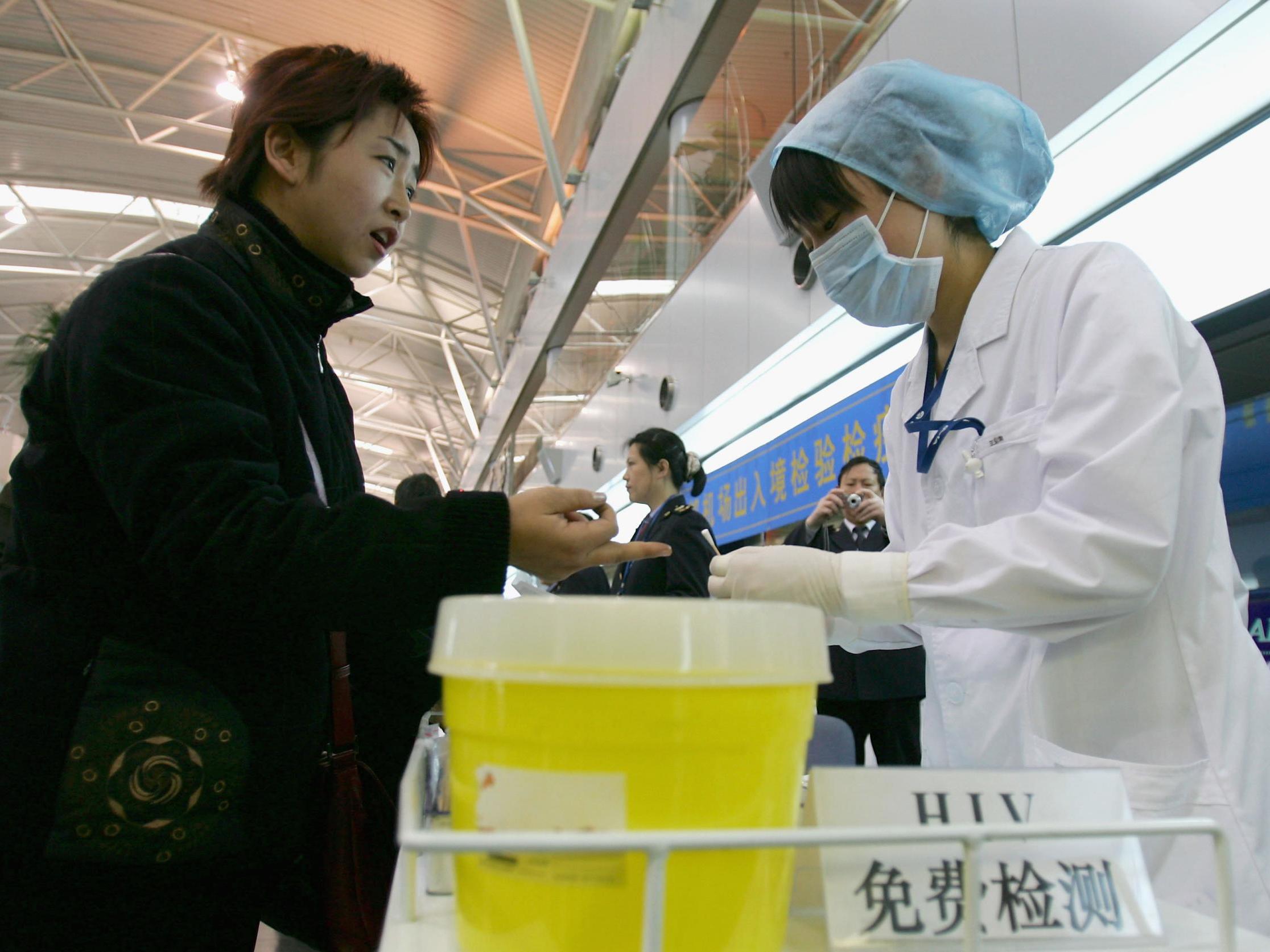World Aids Day 2018: Countries where HIV positive tourists face travel restrictions
Attitudes to the condition vary around the globe
Your support helps us to tell the story
From reproductive rights to climate change to Big Tech, The Independent is on the ground when the story is developing. Whether it's investigating the financials of Elon Musk's pro-Trump PAC or producing our latest documentary, 'The A Word', which shines a light on the American women fighting for reproductive rights, we know how important it is to parse out the facts from the messaging.
At such a critical moment in US history, we need reporters on the ground. Your donation allows us to keep sending journalists to speak to both sides of the story.
The Independent is trusted by Americans across the entire political spectrum. And unlike many other quality news outlets, we choose not to lock Americans out of our reporting and analysis with paywalls. We believe quality journalism should be available to everyone, paid for by those who can afford it.
Your support makes all the difference.Now in its 30th year, World Aids Day aims to promote awareness and combat discrimination surrounding the disease.
While huge strides have been made in treating HIV since it reached epidemic proportions in the early 1980s, attitudes to the condition vary around the globe.
Here is a guide to the countries that currently restrict travel for those suffering from HIV.
Bhutan
Any visitor staying for 14 days is free to do so but those holidaying for longer will require an HIV test taken within the last six months. Denial of entry or deportation is possible without it.
Brunei
While there is no mandatory testing system in place, those known to carry HIV face expulsion. A test is required for anyone seeking a work or study visa.
Equatorial Guinea
Travellers are required to have verification they have received a yellow fever vaccine. An HIV negative test many also be required and a denial of entry or deportation is possible without one.
Iran
While Tehran does not place restrictions on those visiting for up to three months, travellers from South Africa specifically may be asked to take an HIV test and are advised to contact their embassy before departing. The country may deny visas to HIV positive travellers and those seeking a working or residential visa require an HIV negative test.
Iraq
Baghdad requires anyone staying for longer that 10 days to take a test in a state laboratory. It could refuse entry or deport anyone found to be, even diplomats.
Jordan
HIV positive people can be refused entry at the border. The presence of antiretroviral drugs among their possessions may be used as confirmation of carrier status.
Krygystan
People staying for longer than 30 days are required to provide documentation proving their HIV negative status.
Papua New Guinea
Medical documentation may be required, including an HIV test, for all travellers aged 16 or older. The same applies to those seeking residency.
Qatar
Travellers staying for more than a month are required to take an HIV test in a Qatari state laboratory. Those found to have the condition may be turned away or deported.
Russia
Moscow does not require any proof of HIV testing for those staying less than three months but those applying for work and student visas must have documentation of negative status.
Singapore
No HIV testing is required for tourists staying for 30 days. Foreign certificates proving HIV negative states are accepted but the import of antiretrovirals must be approved by the country’s Health Science Authority. Persons found to be HIV positive can be expelled but not in the event they are married to a Singapore citizen.

Solomon Islands
Visitors and residents are free to stay for 90 days without testing but are required to provide documentation of a clear HIV test for any longer.
Sudan
An HIV negative test may be required for proof of entry and will be required for those seeking to stay longer than 90 days.
Suriname
People from Africa, Asia and Eastern Europe require a health certificate stating they are clear of HIV and can import antiretrovirals for personal use if they have a doctor’s prescription proving the necessity. Those subsequently found to have HIV could face deportation.
Taiwan
Visitors are free to stay for three months without testing and to bring antiretrovirals for personal use. However, those known to have HIV could be denied entry and those with residency visas subsequently found to be carriers may be ordered to leave with three months’ notice.
Tunisia
People staying for longer than 30 days may be required to have an HIV taste after arrival. Antiretroviral drugs are allowed for personal use. A test is required for anyone seeking a working or study visa.
Turks and Caicos Islands
People staying for longer than 30 days are required to have an HIV test after arrival. A test is also required for anyone seeking a working or study visa.
UAE
No HIV testing is required for tourists but those seeking a work or residency visa are required to be tested upon arrival. Foreign documentation is invalid and the import of antiretrovirals is not permitted.

Join our commenting forum
Join thought-provoking conversations, follow other Independent readers and see their replies
Comments